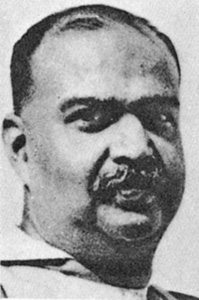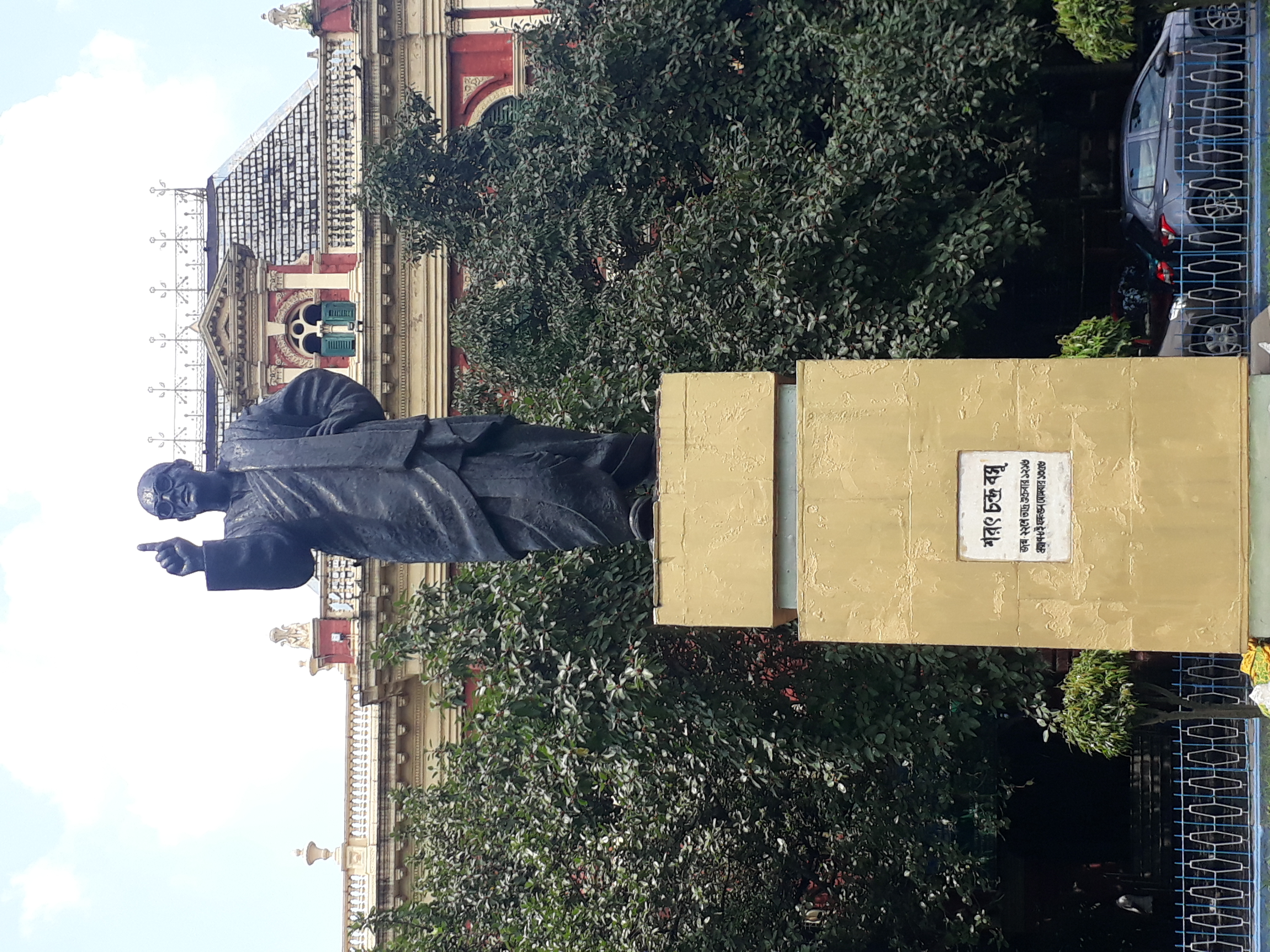|
Jadunath Sinha
Jadunath Sinha (1892 – 10 August 1978) was an Indian philosopher, writer and religious seeker. Early life Jadunath Sinha was born in Kurumgram in Birbhum, West Bengal in 1892. Later he lived in Murshidabad and Kolkata (then Calcutta). Jadunath Sinha came from a Shakta family. So, Sinha had spiritual experiences throughout his life. He followed both classical tantra and emotional Shakta bhakti, with a philosophical position of Shakta universalism. Academic career Jadunath Sinha had passed B.A., Honours in Philosophy in 1915 from the Calcutta University and simultaneously bagging the ''Philip Samuel Smith Prize'' and the ''Clint Memorial Prize''. Subsequently, he passed the M.A. on Philosophy from the Calcutta University in 1917. In October 1922, he submitted a thesis on "Indian Psychology and Perception" and went on to win the Premchand Roychand Scholarship; his examiners were Brajendra Nath Seal and Sarvepalli Radhakrishnan. The remaining parts were submitted till completion ... [...More Info...] [...Related Items...] OR: [Wikipedia] [Google] [Baidu] |
Kurumgram
Kurumgram is an old village located in Nalhati I CD Block in Rampurhat subdivision of Birbhum district in West Bengal State of India. Geography Total geographical area of Kurumgram village is 4.04 km2 and it is the 15th largest village by area in the sub district. Kurumgram's elevation / altitude is 40 meters above sea level. Time Zone- Indian Standard Time(IST) (GMT+5:30). Kurumgram is located 60 km towards north from District headquarters Suri, Birbhum. 10 km from Nalhati town, 13 km from Rampurhat, 225 km from State capital Kolkata. The other cities nearby are Sainthia (45 km), Baharampur (60 km) and Bolpur (80 km). The Tarapith Tara Maa Temple is near to Kurumgram (22 km). The historic Lalbagh & Murshidabad are also not very far from Kurumgram (65 km). The nearby villages of Kurumgram are Kanupara, Sardha, Mehegram, Tejhati, Bujung, Dharampur, Barla, Raghunathpur, Gayta, Belun, Sadashibpur, Kanaipur etc. Administrativ ... [...More Info...] [...Related Items...] OR: [Wikipedia] [Google] [Baidu] |
Ganganath Jha
Sir Gaṅgānāth Jhā (25 December 1872 – 9 November 1941) was a scholar of Sanskrit, Indian philosophy and Buddhist philosophy. Service At the age of 24, he was appointed a librarian of the Darbhanga state by its Maharaja. In 1902, he was appointed a Professor of Sanskrit at Muir Central College, Muir College in Allahabad, which he left in 1918 to become the first Indian principal of the Government Sanskrit College in Benares. Between 1920 and 1923 he served as a member of the Council of State in the British India, Central British Government of India. He was vice-chancellor of University of Allahabad (Prayag University) during 1923–32. The University of Allahabad established the Ganganath Jha Hostel in his honour. Honors and awards * Honorary Fellow of the Asiatic Society, 1924 * Campbell Memorial Gold Medal, Bombay Branch of the Royal Asiatic Society, 1935 * Knight Bachelor, 1941 Birthday Honours List Literary work Sir GN Jha written numerous books and translated ... [...More Info...] [...Related Items...] OR: [Wikipedia] [Google] [Baidu] |
1892 Births
Year 189 ( CLXXXIX) was a common year starting on Wednesday (link will display the full calendar) of the Julian calendar. At the time, it was known as the Year of the Consulship of Silanus and Silanus (or, less frequently, year 942 ''Ab urbe condita''). The denomination 189 for this year has been used since the early medieval period, when the Anno Domini calendar era became the prevalent method in Europe for naming years. Events By place Roman Empire * Plague (possibly smallpox) kills as many as 2,000 people per day in Rome. Farmers are unable to harvest their crops, and food shortages bring riots in the city. China * Liu Bian succeeds Emperor Ling, as Chinese emperor of the Han Dynasty. * Dong Zhuo has Liu Bian deposed, and installs Emperor Xian as emperor. * Two thousand eunuchs in the palace are slaughtered in a violent purge in Luoyang, the capital of Han. By topic Arts and sciences * Galen publishes his ''"Treatise on the various temperaments"'' (aka ' ... [...More Info...] [...Related Items...] OR: [Wikipedia] [Google] [Baidu] |
University Of Calcutta Alumni
A university () is an educational institution, institution of higher education, higher (or Tertiary education, tertiary) education and research which awards academic degrees in several Discipline (academia), academic disciplines. Universities typically offer both undergraduate education, undergraduate and postgraduate education, postgraduate programs. In the United States, the designation is reserved for colleges that have a graduate school. The word ''university'' is derived from the Latin ''universitas magistrorum et scholarium'', which roughly means "community of teachers and scholars". The first universities were created in Europe by Catholic Church monks. The University of Bologna (''Università di Bologna''), founded in 1088, is the first university in the sense of: *Being a high degree-awarding institute. *Having independence from the ecclesiastic schools, although conducted by both clergy and non-clergy. *Using the word ''universitas'' (which was coined at its foundation ... [...More Info...] [...Related Items...] OR: [Wikipedia] [Google] [Baidu] |
Bengali People
Bengalis (singular Bengali bn, বাঙ্গালী/বাঙালি ), also rendered as Bangalee or the Bengali people, are an Indo-Aryan ethnolinguistic group originating from and culturally affiliated with the Bengal region of South Asia. The current population is divided between the independent country Bangladesh and the Indian states of West Bengal, Tripura and parts of Assam, Meghalaya and Manipur. Most of them speak Bengali, a language from the Indo-Aryan language family. Bengalis are the third-largest ethnic group in the world, after the Han Chinese and Arabs. Thus, they are the largest ethnic group within the Indo-Europeans and the largest ethnic group in South Asia. Apart from Bangladesh and the Indian states of West Bengal, Tripura, Manipur, and Assam's Barak Valley, Bengali-majority populations also reside in India's union territory of Andaman and Nicobar Islands, with significant populations in the Indian states of Arunachal Pradesh, Delhi, Odisha, ... [...More Info...] [...Related Items...] OR: [Wikipedia] [Google] [Baidu] |
Phani Bhushan Chakravarti
Phani means a serpent Serpent or The Serpent may refer to: * Snake, a carnivorous reptile of the suborder Serpentes Mythology and religion * Sea serpent, a monstrous ocean creature * Serpent (symbolism), the snake in religious rites and mythological contexts * Serp ... in Sanskrit language. It may refer to: * Phani Majumdar, Indian director * Phani Ramachandra, Indian film and television director * Phani Sarma, Assamese actor and director *'' Phanis'', a species of beetle {{Disambiguation Indian masculine given names Masculine given names ... [...More Info...] [...Related Items...] OR: [Wikipedia] [Google] [Baidu] |
Syama Prasad Mookerjee
Syama Prasad Mukherjee (6 July 1901 – 23 June 1953) was an Indian politician, barrister and academician, who served as India's first Minister for Industry and Supply (currently known as Ministry of Commerce and Industry) in Jawaharlal Nehru's cabinet. After falling out with Nehru, protesting against the Liaquat-Nehru Pact, Mukherjee resigned from Nehru's cabinet. With the help of the Rashtriya Swayamsevak Sangh, he founded the Bharatiya Jana Sangh, the predecessor to the Bharatiya Janata Party, in 1951. He was also the president of Akhil Bharatiya Hindu Mahasabha from 1943 to 1946. He died in the custody of Jammu and Kashmir Police in 1953. He was provisionally diagnosed of a heart attack and shifted to a hospital but died a day later. Since the Bharatiya Janata Party is the successor to the Bharatiya Jana Sangh, Mukherjee is also regarded as the founder of the Bharatiya Janata Party. Early life and academic career Syama Prasad Mukherjee was born in a Bengali Hindu family o ... [...More Info...] [...Related Items...] OR: [Wikipedia] [Google] [Baidu] |
Pro Bono
( en, 'for the public good'), usually shortened to , is a Latin phrase for professional work undertaken voluntarily and without payment. In the United States, the term typically refers to provision of legal services by legal professionals for people who are unable to afford them. is also used in the United Kingdom to describe the central motivation of large organizations, such as the National Health Service and various NGOs which exist "for the public good" rather than for shareholder profit, but it equally or even more applies to the private sector where professionals like lawyers and bankers offer their specialist skills for the benefit of the community or NGOs. Legal counsel Pro bono legal counsel may assist an individual or group on a legal case by filing government applications or petitions. A judge may occasionally determine that the loser should compensate a winning pro bono counsel. Philippines In late 1974, former Philippine Senator Jose W. Diokno was released from ... [...More Info...] [...Related Items...] OR: [Wikipedia] [Google] [Baidu] |
Sarat Chandra Bose
Sarat Chandra Bose (Bengali: শরৎচন্দ্র বসু) (6 September 1889 – 20 February 1950) was an Indian barrister and independence activist. Early life He was born to Janakinath Bose (father) and Prabhabati Devi in Cuttack, Odisha on 6 September 1889. The family originally hailed from Kodalia (now Subhashgram), South 24 Parganas, West Bengal. He belonged to the kulin Kayastha family. His father was descended from the Boses of Mahinagar ( South 24 Parganas) while his mother Prabhabati Devi was part of the famous Dutt family of Hatkhola in north Kolkata. She gave birth to fourteen children, six daughters and eight sons, among whom were leftist leader Sarat Chandra Bose, Netaji Subhas Chandra Bose and distinguished cardiologist Dr. Sunil Chandra Bose. Sarat had two elder sisters. They were Pramilabala Mitra and Saralabala Dey. He had an elder brother, Satish Chandra Bose. He had six younger brothers, namely: Suresh Chandra Bose, Sudhir Chandra Bose, Dr. Su ... [...More Info...] [...Related Items...] OR: [Wikipedia] [Google] [Baidu] |
Kuppuswami Sastri
Sadhu Kuppuswami (1890–1956) was a Fiji Indian religious leader. He was awarded the title "Sevaka Ratnam" in 1941 Early life Kuppuswami, the son of Govind Swamy Naidu, was born in the village of Konoor, Tamil Nadu, India in 1890. He was literate in Tamil and Telugu and was a police officer in India. He arrived in Fiji on 27 April 1912 as an indentured labourer, abroad the Sutlej III. He served his five years of indenture in Tavua. He then tried cane farming but soon gave it up to join the Melbourne Trust Company in Rakiraki as a two-horse ploughman. His father, an Orthodox South Indian, ensured that his son was given the best to develop his knowledge of South-Indian religion, culture and art in his mother tongue Tamil from a young age. Formation of South Indian Organisation At Rakiraki, he met T.A.J. Pillai, a court clerk, and stayed with his family while teaching Tamil to local children. During the influenza epidemic of 1918, Sadhu Swami did a lot of relief work by transporti ... [...More Info...] [...Related Items...] OR: [Wikipedia] [Google] [Baidu] |



